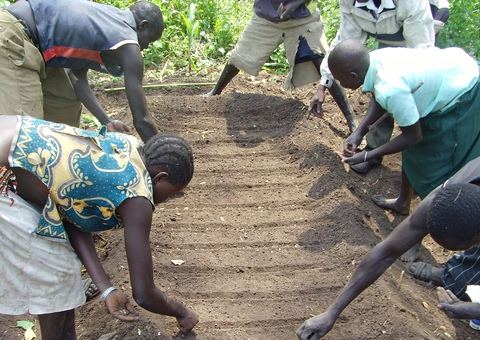South Sudan is facing the world’s most severe food insecurity crisis, yet the local groups most effective at delivering aid are not being directly funded, according to a new report.
Only 0.4% of humanitarian funding meant for food is directly channelled towards South Sudanese NGOs, despite them being the most effective at tackling hunger, according to the Catholic Agency for Overseas Development (Cafod).
South Sudan has 7.7 million people facing acute malnutrition or starvation as it enters its fifth year of severe food insecurity, according to new research measuring the intensity of food insecurity across populations, produced by Cafod and anti-poverty group Development Initiatives.
Humanitarian funding for food in South Sudan has been cut by 38% since 2020, according to the report, with the UK government alone cutting its budget for South Sudan by 59% in 2021.
Floods, droughts and conflicts have fuelled the crisis and, according to Cafod, local organisations have been best placed to serve hard-to-reach populations. They often continue to work in high-risk areas, even after international organisations withdraw, while building more trust with the populations they serve.
“The local organisations, who are on the frontline in responding to crises in areas where no one else can go, are too often ignored. If we are ever going to tackle entrenched humanitarian crises, we need to properly fund those on the frontline,” said Gloria Modong Morris of Titi Foundation in South Sudan.
“The UN and international NGOs talk a good game about the best model to responding to a crisis being as local as possible, but the reality couldn’t be more different.”
According to Cafod, local NGOs are usually given only short-term grants, which makes it hard for them to plan projects with lasting impact or invest in staff and systems for delivering support. The report said that while NGOs are often asked for information on conditions, they have only limited involvement in decision-making. This played a part in humanitarian responses failing to create long-term resilience, it concluded.
Howard Mollett, Cafod’s head of humanitarian policy, said that in the 11 years since South Sudan’s independence, international aid groups should have given more say to local NGOs.
“Local organisations work in the most dangerous parts of South Sudan, which international agencies cannot reach. Yet instead of having their back, it feels like local groups’ willingness to take on the risk of getting aid to these areas is being taken advantage of,” said Mollett.
Prof Dennis Dijkzeul, who focuses on humanitarian studies at the Institute for International Law of Peace and Armed Conflict, said local organisations deliver aid effectively because they often live closer to the people they are supporting, building trust and a better understanding of the conditions.
“Localisation is about working with the people, for the people. Their local expertise, local acceptance or local trust can really help, and that can lead to higher efficiency or quality,” said Dijkzeul.
More money and power should be given to local organisations to build their capacities, he said, but this does not happen because of a power imbalance between the richer “global north” and developing countries and a lack of incentive to shift away from relying on international groups.
“Most of the money comes from the global north, and those who pay the piper call the tune. So even though there’s a lot of lip service to localisation, it’s hard to change the incentives of the global humanitarian system.”











